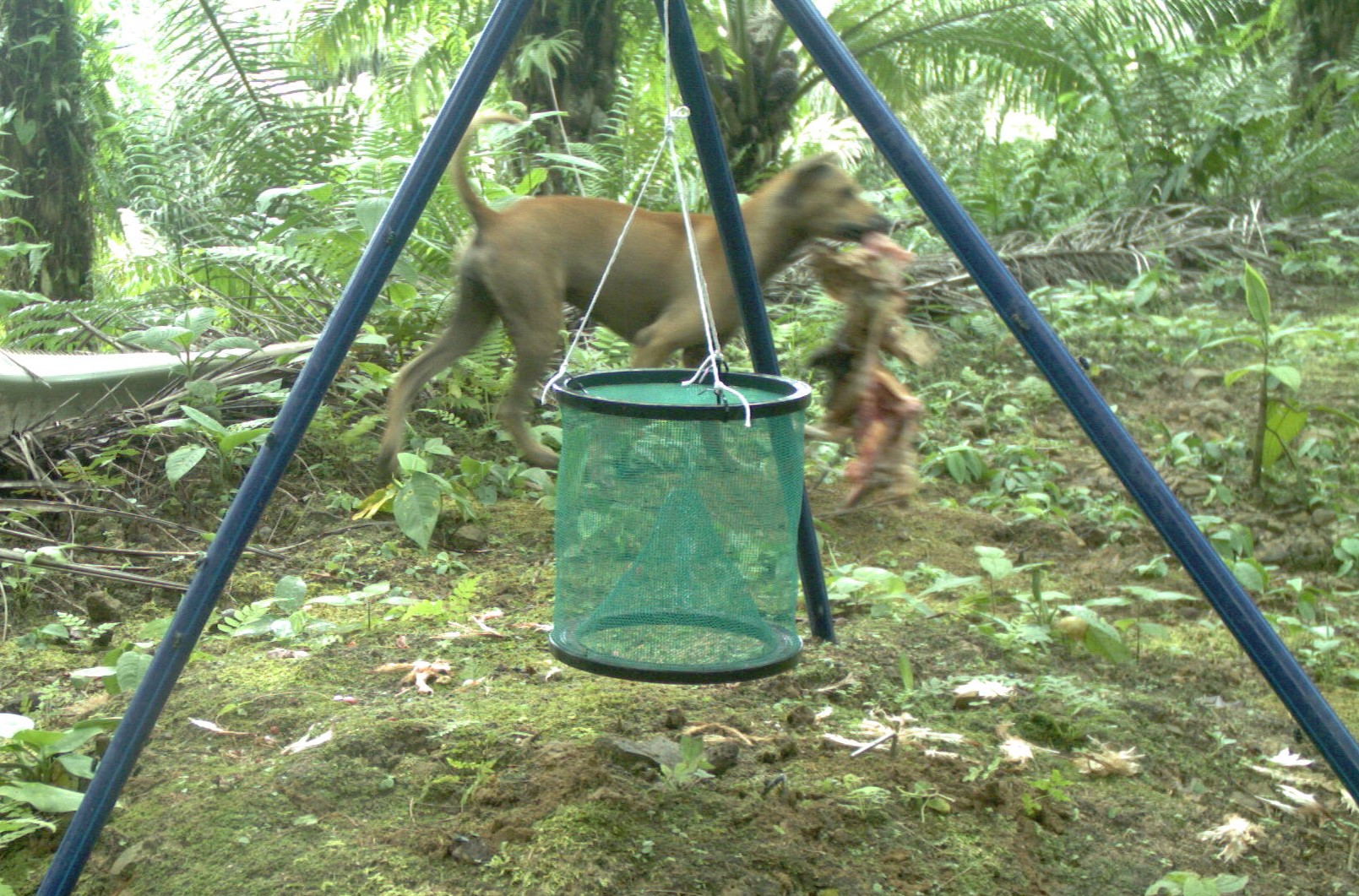Vertebrate Scavengers Control Agents of
Diarrheal Diseases
Scavenging is a common phenomenon, particularly amongst carnivorous
vertebrates. By consuming carrion, vertebrate scavengers reduce
resource availability for both pathogenic bacteria and their insect
vectors. We investigated the ability of wild vertebrate scavengers to
control agents of human diarrheal diseases (pathogenic Escherichia coli
and Salmonella spp.) in oil palm plantations in Sabah (East Malaysia).
Experimental carcasses were removed by common scavengers (Varanus
salvator, Canis lupus familiaris, and Viverra tangalunga), and this
greatly reduced the amount of pathogenic bacteria on the surfaces of
filth flies collected above the experimental carcasses. Thus,
vertebrate scavengers provide the ecosystem service of disease control
in oil palm plantations. However, circumstantial evidence suggest that
hunting of vertebrates may be taking place and suppressing this
ecosystem service. We propose that making oil palm plantations
scavenger-friendly could yield great human health benefits for the
millions of workers employed in this rapidly-expanding industry,
without drastically changing current management practices.

Read the full article, published by Zoological
Studies, here
Follow Zoological Studies on
Twitter @ZooStudies
and Facebook
